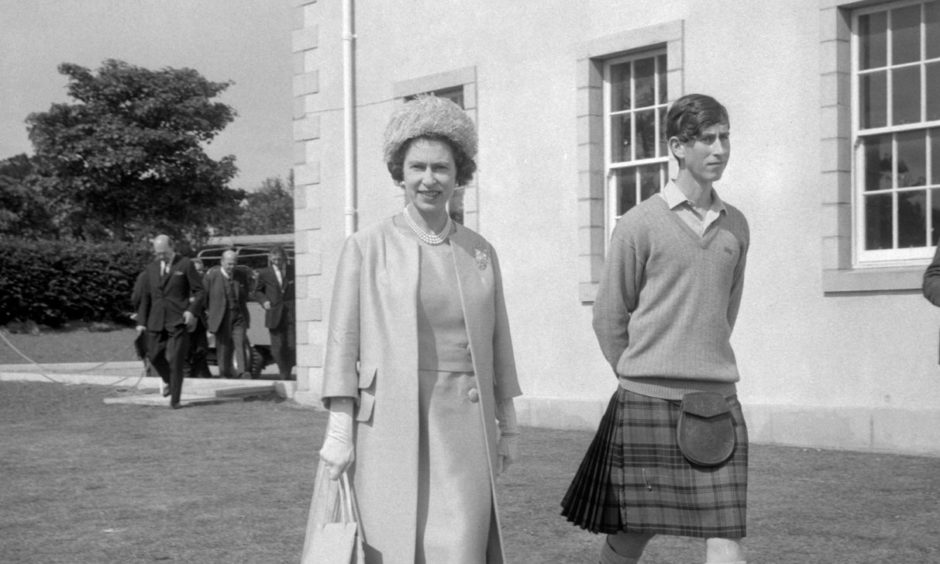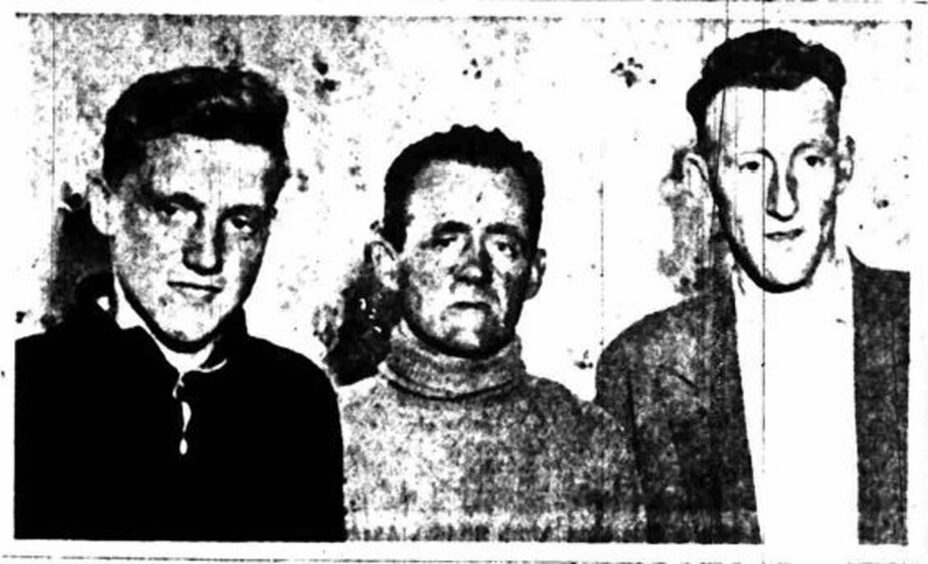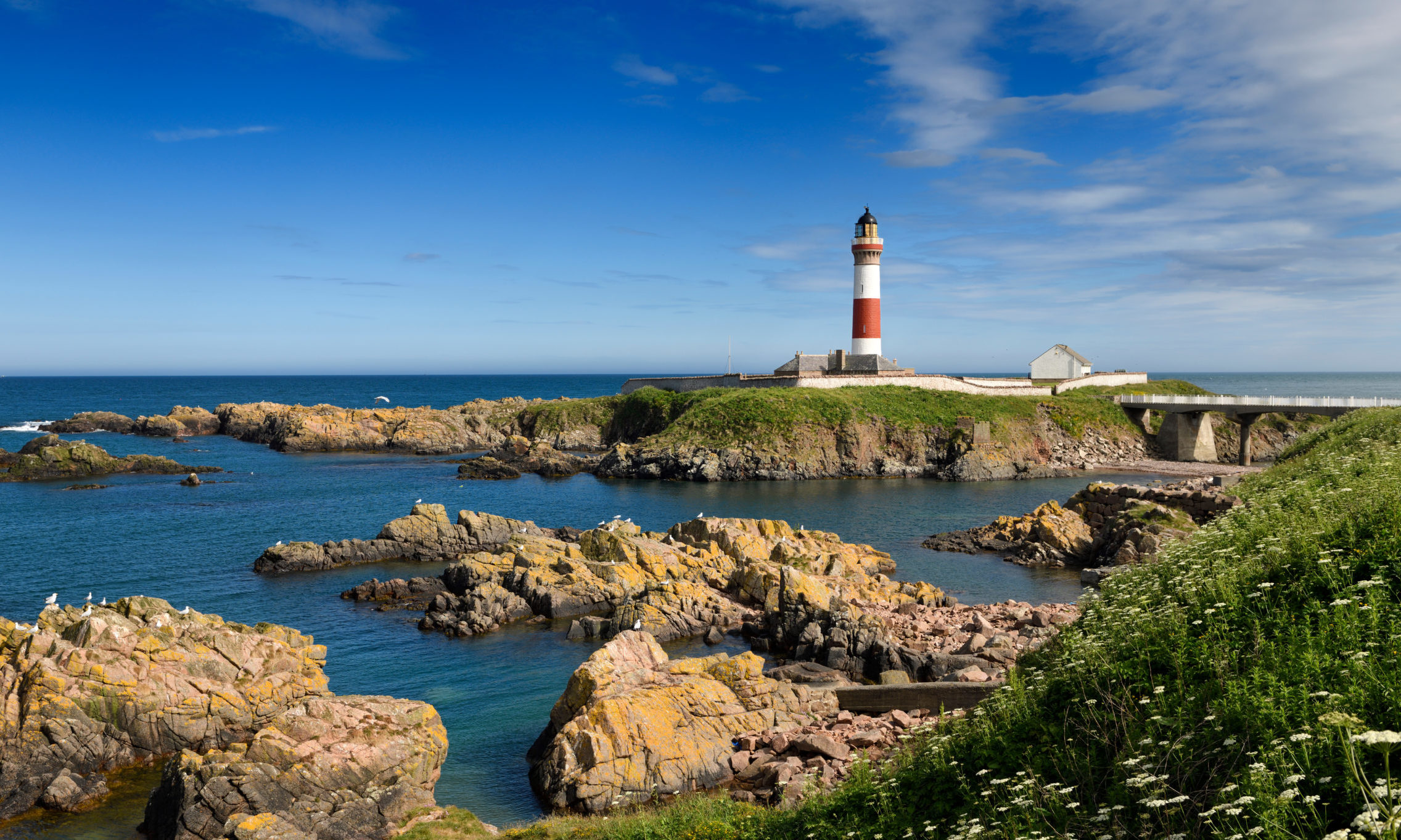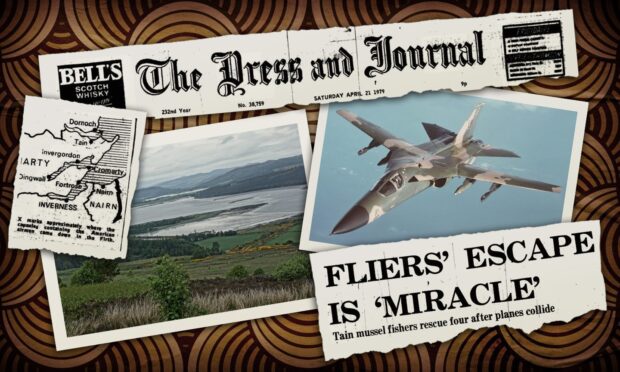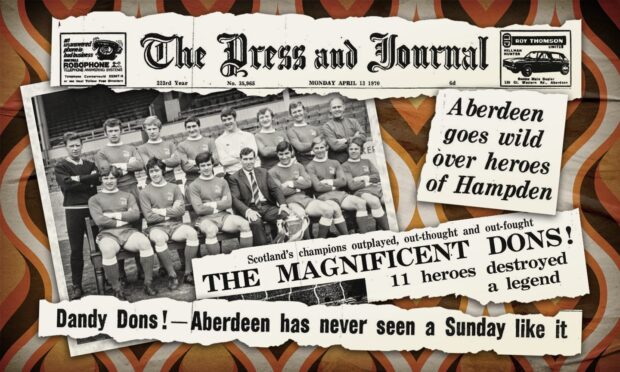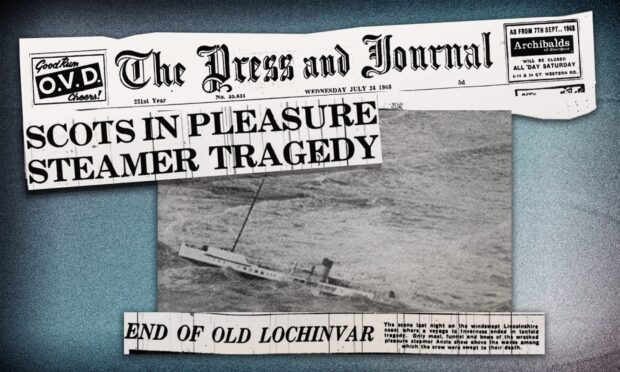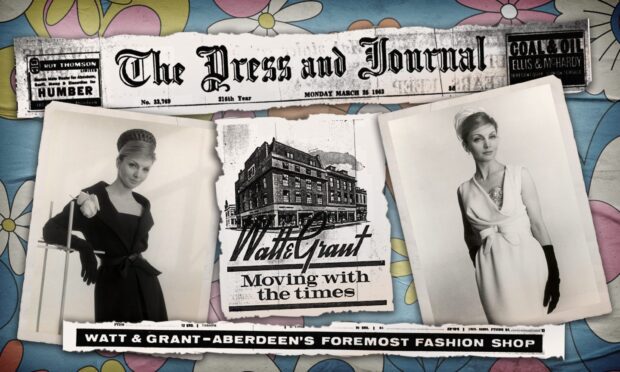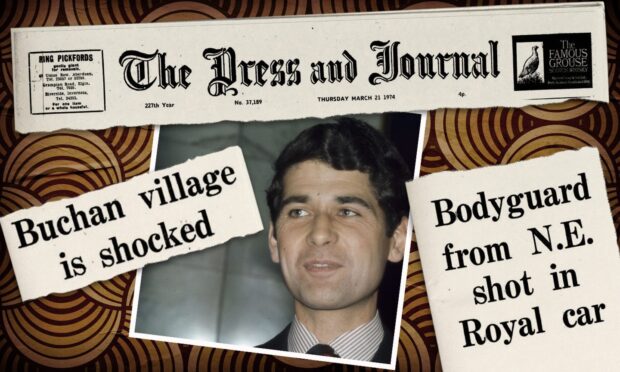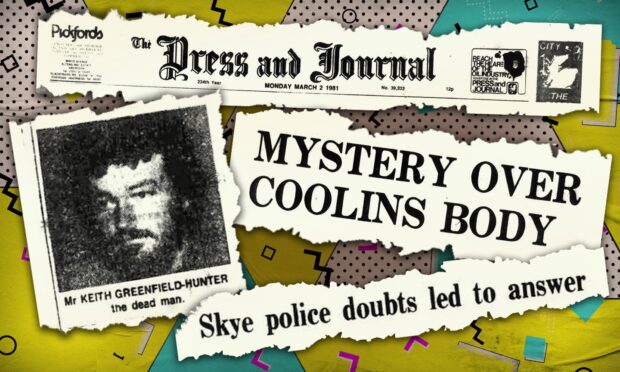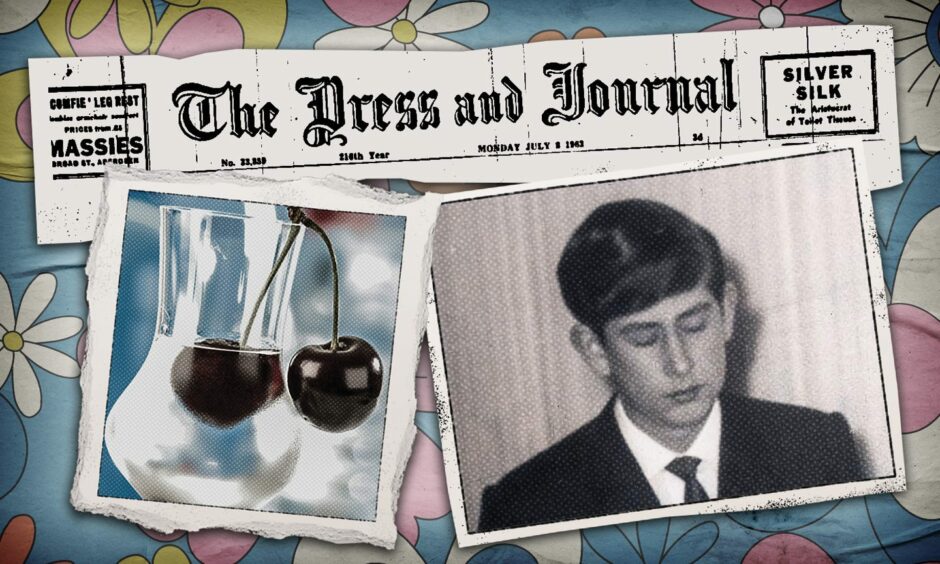
On this day in 1963, a young Prince Charles was emerging from a bit of a scrape on the island of Lewis; a Boddam fisherman had carried out his eighth rescue off the Aberdeenshire coast and the Cold War cast its chilly shadow in the background with a bit of reverse defection. Here are the headlines from 60 years ago.

The Charles and the cherry brandy saga: charges are dropped
It was the smallest of paragraphs on the front page of the P&J but it spoke volumes.
‘Charges preferred against the licensee of a Stornoway hotel and a barmaid following the cherry brandy incident involving the Prince of Wales have now been dropped.’
An enormous scandal had blown up when the 14 year old heir to the throne was spotted in the Crown Hotel in Stornoway chugging down a cherry brandy.
Not only was he underage, but booze was forbidden at future king’s school
He was at Gordonstoun at the time, and not only was he underage, drinking alcohol was also forbidden to Gordonstoun pupils.
Charles had sailed into Stornoway aboard the school’s training ship Pinta on June 17, where dinner had been laid on for the pupils at the Crown Hotel, followed by a film at the Stornoway Playhouse.
He had tagged along with a group of older boys to grab a quick drink, but, as he later explained, he had no idea what to order as he had never tasted alcohol, apart from a tot of cherry brandy given to him by the Queen before a hunt.
The cost was ‘princely’ at two shillings and sixpence, half a crown, worth about £5 today.
The emotional cost was also considerable when the news broke and the King was mortified.
A stern telling off from the headmaster, and serious repercussions for his bodyguard
He was spoken to sternly by his headmaster, Robert Chew, and his bodyguard lost his job.
Fortunately, erring against the many people in glasshouses making an uproar about the incident, Stornoway depute-fiscal Colin Scott Mackenzie jun. made the decision to drop all charges against the hostelry involved.
A local hero and fisherman from Boddam makes another in a string of incredible rescues
Meanwhile off the Aberdeenshire coast an extraordinary local hero had made his eighth life-saving rescue.
Alfred Buchan, a lobster and crab fisherman, had already proved his heroic credentials when he saved a boy from drowning in Peterhead North harbour some twenty years earlier, for which he’d been recognised by the Royal Humane Society.
Altogether he’d saved three lads at Peterhead harbours, and carried out rescues of ‘adventurous youths in search of gulls’ eggs’ at Boddam and nearly cliffs.
A daring rescue of an airman in the sea near Buchan Ness lighthouse
This time, he, his 16 year old son John and brother-in-law Tom Stephen leapt to the rescue of 20 year old airman from RAF Buchan, John Parsons, whose dinghy had turned turtle near Buchan Ness Lighthouse, throwing the airman into the sea.
Peterhead lifeboat was called, but couldn’t match the rowing skills of the three rescuers.
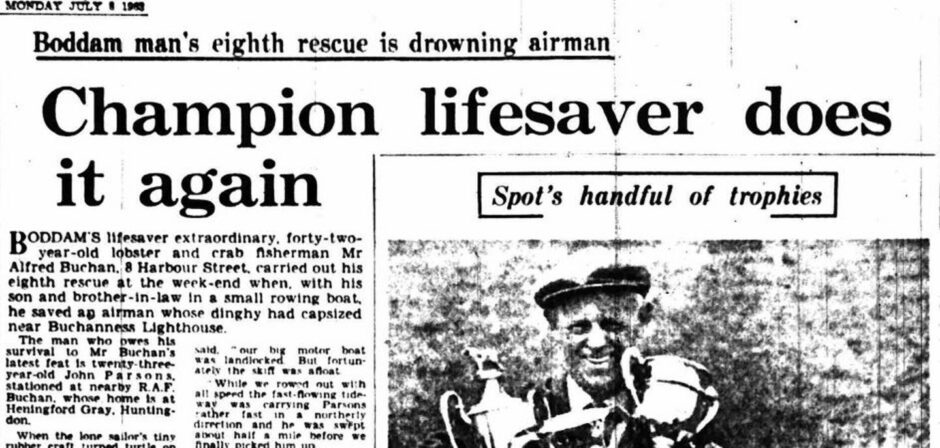
They jumped into a 15ft skiff and chased the stricken man as he clung to a desperately buoy half a mile north, in freezing water, and moments from death.
“On such occasions what is uppermost in my mind is that you are never going to reach your goal in time,” the modest Mr Buchan told the P&J.
“We never seemed to betting much nearer the drowning man despite our exertions.
“However we did make it finally and feel we were just in time for he was in a pretty bad condition when we drew alongside.
“He must have been in the water for almost an hour.”
Sheepdog trials champion from Boyndie wins almost more trophies than he can handle
In case you’re wondering who the handsome fella cut off in the above photo is, here he is again, with his sheep dogs.
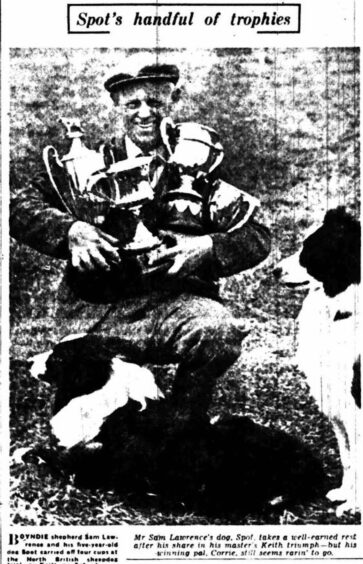
Boyndie shepherd Sam Lawrence, 51, and his five year old dog Spot had carried off four cups at the North British sheepdog trials in Keith at the weekend.
The previous year Spot and Mr Lawrence, who worked on Rettie farm, won the Scottish national trials.
An army corporal defects to East Germany

Another curiosity that day was that a British army corporal with access to top secret information had asked for political asylum in East Germany, behind the Iron Curtain.
Usually it was the other way around.
Corporal Brian Patchett, 24, had been stationed in West Berlin for five years, and had a German girlfriend whose parents lived in East Germany.
The Patchetts’ former family doctor Dr Noel Holmes said: “I knew Brian as a likeable, intelligent and respectable boy.
“Why he should do this is beyond my comprehension.”
The East German authorities said he’d asked for political asylum “to work for a better and more peaceful life.”
It would be 28 more years until the Berlin Wall would come down and East and West Germany would be reunited.
School holidays in full swing, but would this keep the kids entertained these days?
The schools were off, so the P&J thought it should help frazzled parents out by keeping the children occupied with a colouring-in competition in its Children’s Corner page.

Those days seem so innocent now.
Today’s children with their well-honed thumbs would no doubt be unimpressed with this idea of a diversion.

